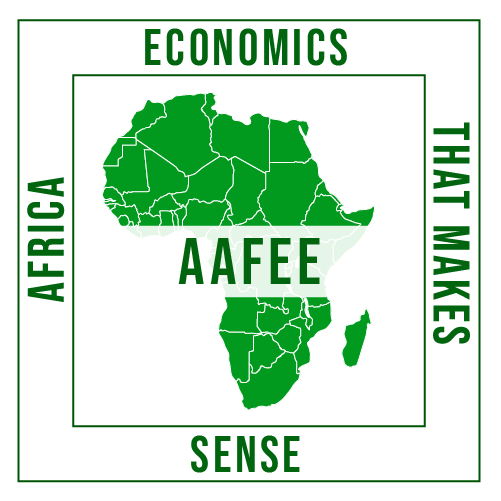ABOUT US
ABOUT US

Founder, AAFEE
VISION & GOAL
The development models in sub-Saharan African nations since independence are focused on trickle-down macroeconomics policies. Exchange of natural resources for reserve currencies, asset management, forex, etcetera. However, natural resources, reserve currencies, asset management and forex are not economic agents. People are the economic agents––the households, firm managers, and the politicians. Nations develop when these agents make the right choices. Unlike mainstream economics, which assume agents’ complete rationality, evolutionary economics places development spotlights on changes in habits. The vision and goal of this website is to construct alternative development models that target peoples’ value (institutions). With domestic institutional changes, some African nations would be on the path to rapid economic development.
BLOG/DISCUSSION
Contributory bloggers generate comments and responses. The blogs and comments bring outside independent views in related books and articles to enrich related topics discussed here. Some blog titles are:
“The Intricacies of the African Economy”
“Africa’s Economic Evolution and Its Need For Good Leadership.”
There is also a platform for informal discussions that highlight institutions and the African development problems.
“WAS THE ECONOMIC MAN BORN OR MADE?”
“Mainstream economic school of thought, which dominates the literature, by their assumption of “rational choice,” implies that the ability to make rational economic decision is hereditary. Meaning, the economic man was born. Evolutionary economics, a subdued non-orthodox economics, says that is crap; no baby was preprogrammed at birth to make sound economic choices. Prevailing institutions are largely the determinant of individual behaviors including economic choices…….”
BOOKS
Press releases and book reviews appear on this page. African nations gained independence during the height of the Cold War when free-market laissez-faire and pursuit of self-interest were the popular slogans. However, beneath free-market institutions are collective institutions that make market institutions successful. The book, Collective Institutions in Industrialized Nations: Economic Lessons for Sub-Saharan Africa highlights these institutions. This book discusses historical and contemporary collective institutions that are bedrocks for thriving economies.
SUBMISSION
Readers who have interests in contributing towards institutions in Africa and how these institutions retard or spur socio-economic progress are welcome to submit papers that could be published on the published article page. This is an opportunity for those who can relate to African core values (institutions) to participate in African affairs.
PUBLISHED ARTICLES
After reviews, accepted articles will be published here. Samples of published articles are:
“SINGLE-MODE VERSUS DUAL MODE-RATIONALITY”
“In making decisions, the psychological aspect of the human mind is examined. To economize on cognitive resources, humans rely on information in their long-term memory, where institutions (habits, values, norms, and customs) are stored. Thus, institutions play a major role in human behaviors, including economic behavior. This is in contrast to assumptions in mainstream economics….”
“AFRICA AND DEVELOPMENT: RATIONAL CHOICE OR INSTITUTIONAL RATIONALITY?”
“Modern economic development models introduced in Africa since independence take for granted important institutions needed for development. These models are based on economic “rational choice” theories which seem to suggest that the ability to make sound economic decisions is part of human anatomy. This notion is a precept for trickle down macroeconomic development policies. Trade liberalization, global economics and financial assets management are among many post-colonial development programs……….”
